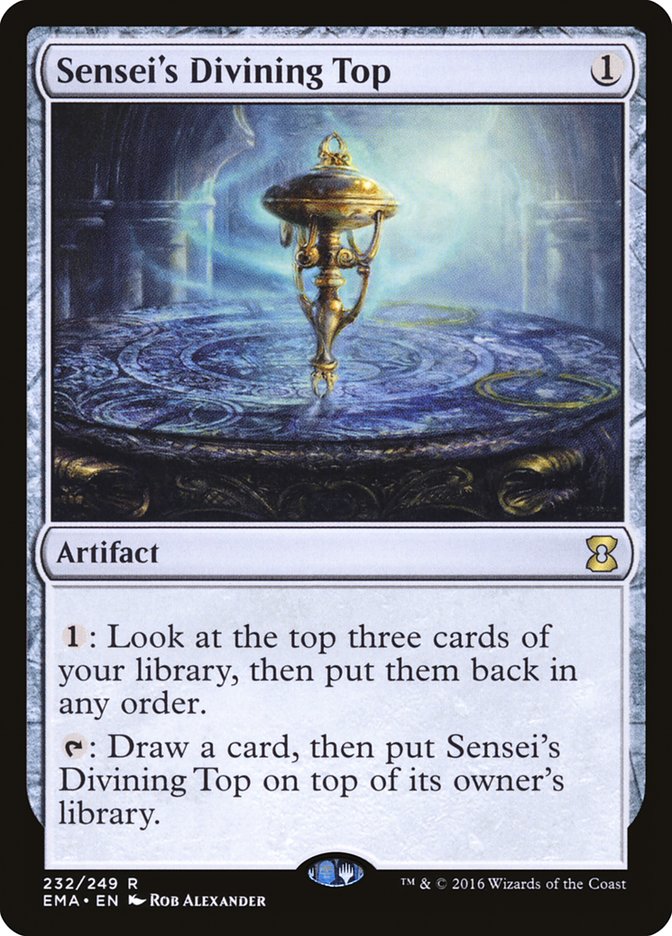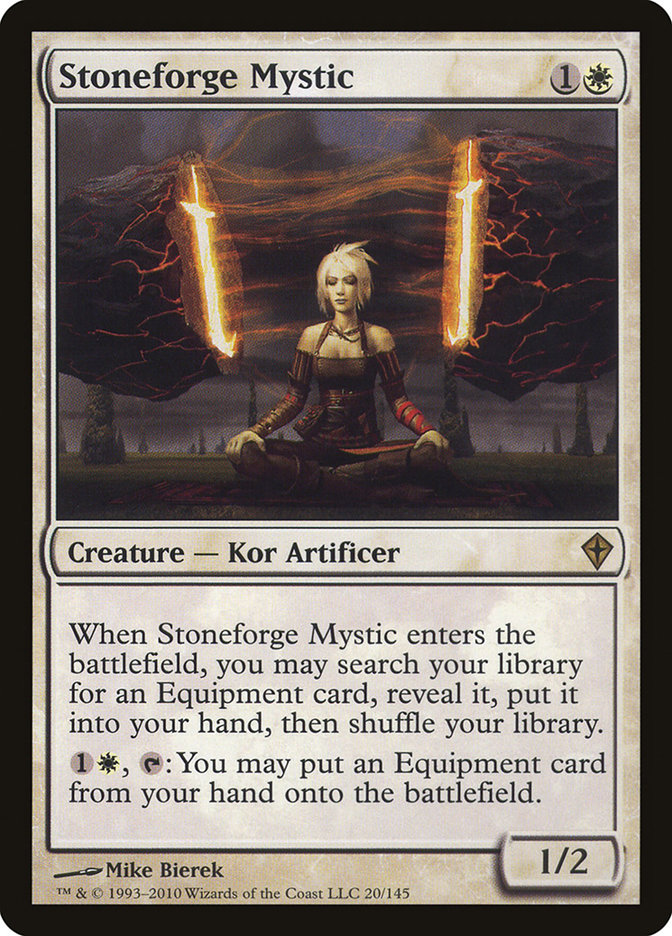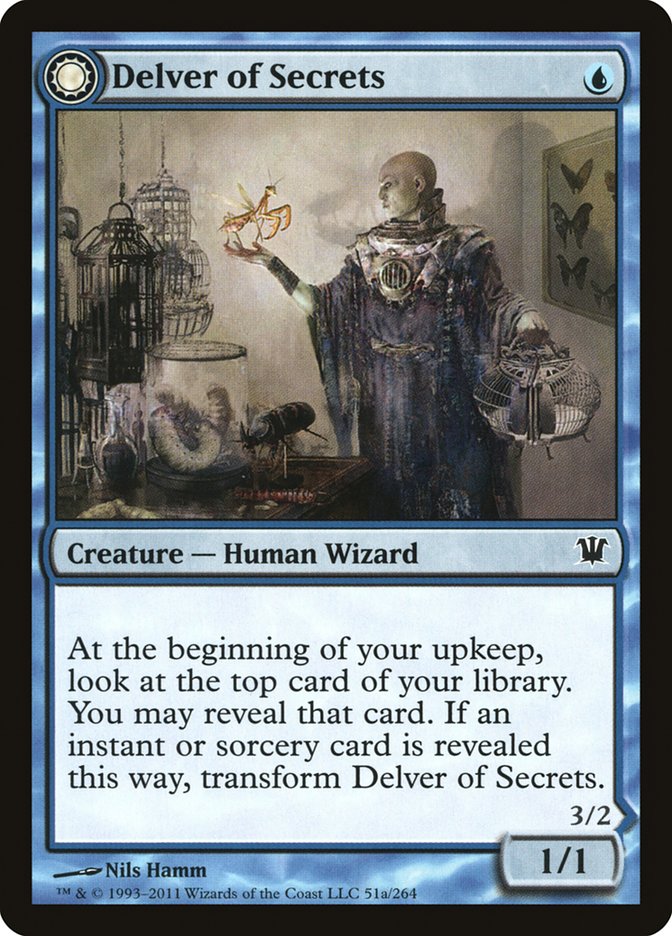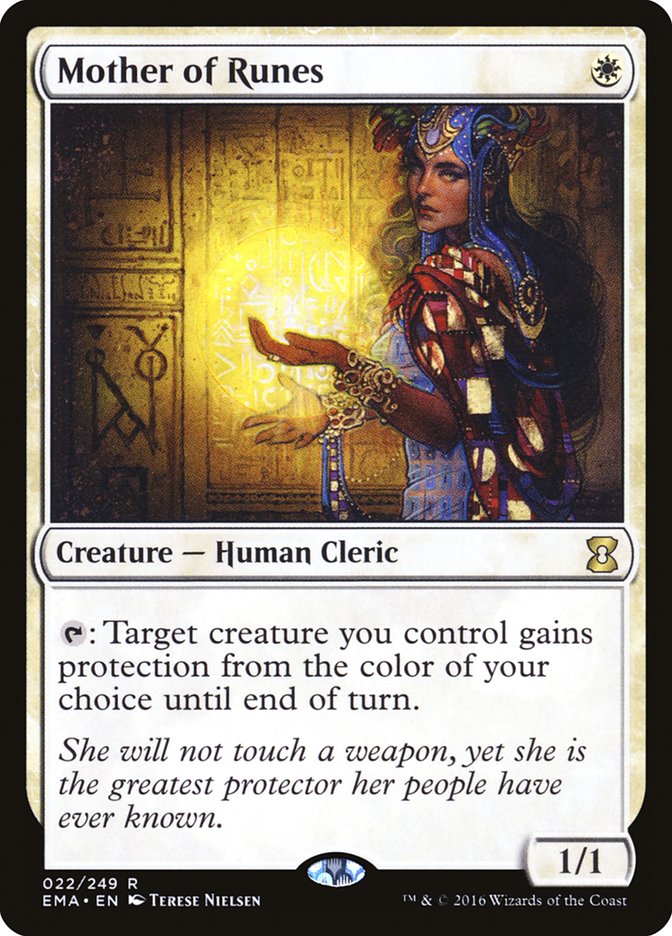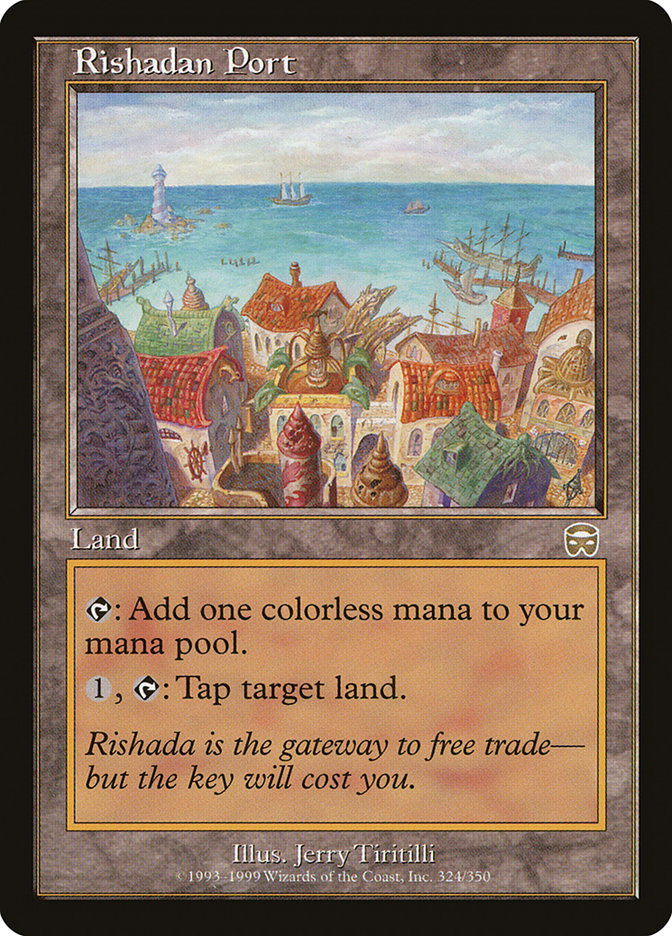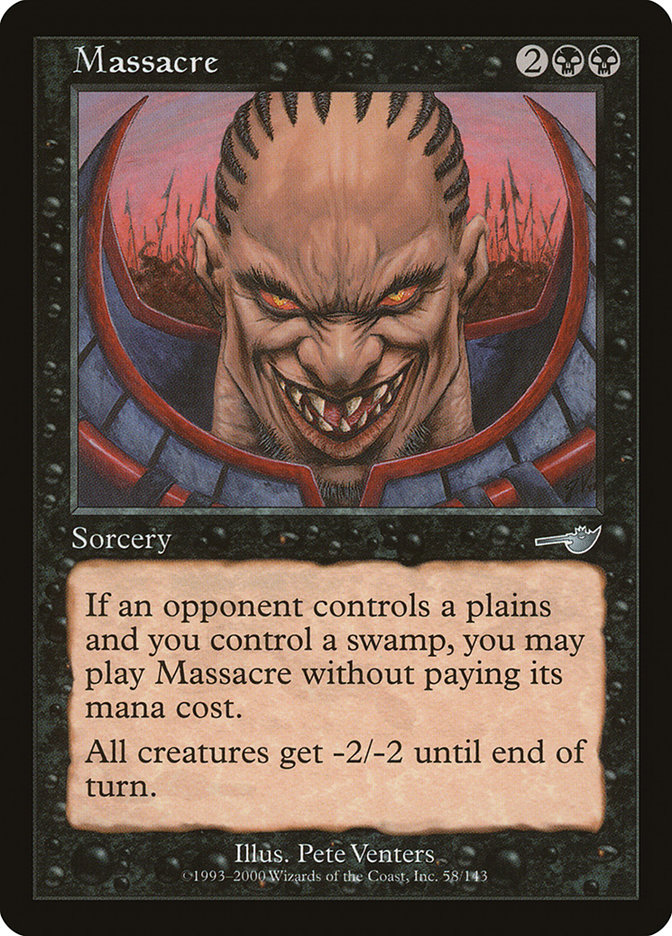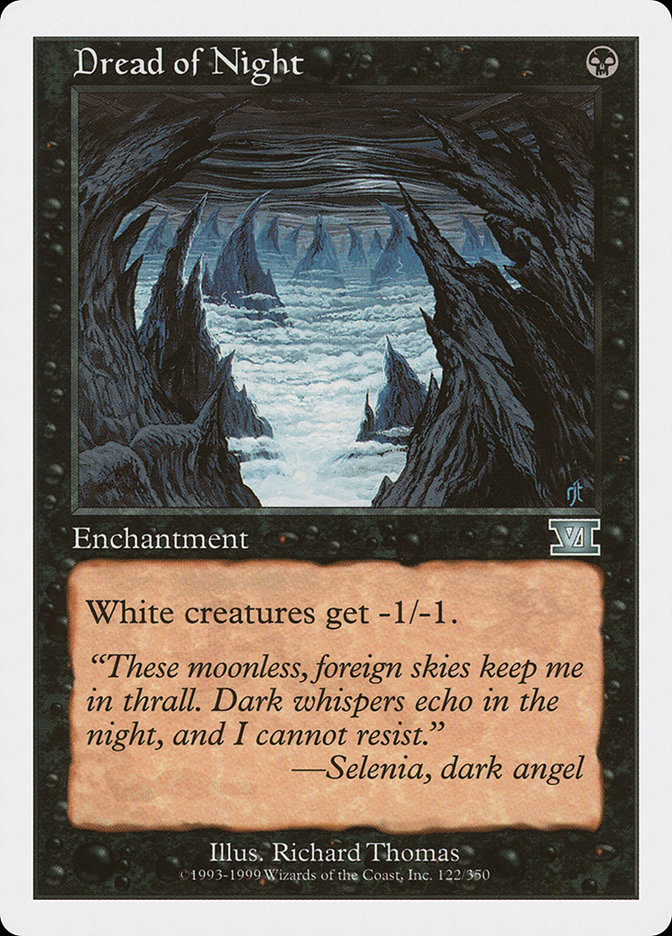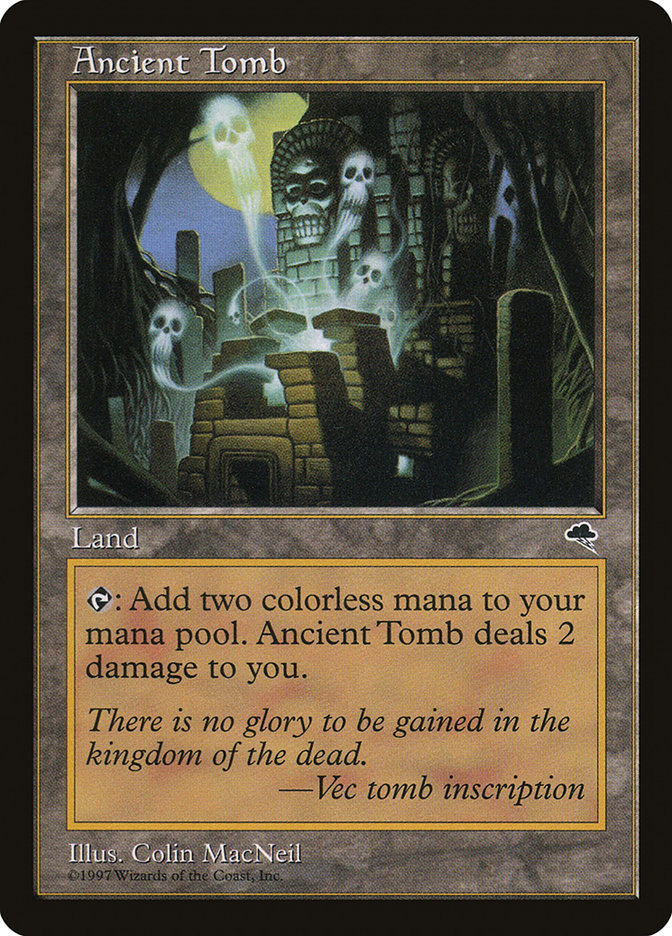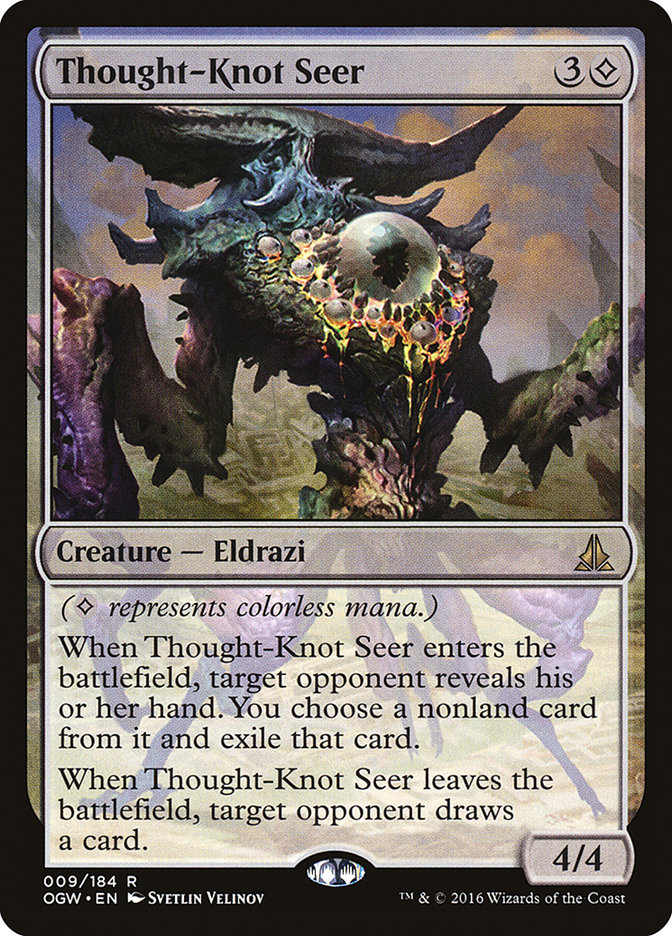It’s crazy to me how fast one can bounce back from burnout. It feels like just yesterday I was getting back from Honolulu after an exhausting jaunt around the world, and yet tomorrow I’ll be getting on the road for #SCGBALT. I don’t know if I’m crazy to continue going to Opens in my delusional attempt to secure a slot at the Players’ Championship or just excited to play Legacy for the first time since last year’s sixteen-person event. I guess this conundrum will be solved next week if I find myself at #SCGCOL, but until then, I can only prepare for what’s ahead, and that’s a weekend full of Brainstorms, Entombs, and Sensei’s Divining Top activations! After all, you can’t spell fun without “un”…tapping with a Top on the battlefield!
Writing about Legacy can be a daunting task. You never truly know if what you are saying is actually correct or if anyone is paying attention.
Is this thing on?
Now, that could just be a personal issue. It’s not difficult for me to get impostor syndrome when it comes to writing about formats I test infrequently, like Modern and Legacy, but at the same time, I put in a good week’s worth of practice before tackling them in my writing. That being said, I do have a theory to why we see so few players transfer the suggestions from content providers into decklists when it comes to this format.
Information overload and personal bias both play a role in such a complex and deep format, making it very difficult to be effective in the content medium. Players either have a tough time trusting content on this format due to having more faith in their own conclusions or fear learning new play patterns in a short amount of time. They also have a tough time respecting one voice they trust when another is saying something completely different and a third is doing something even more off the wall.
Take Brian Braun-Duin’s Jeskai Stoneblade deck from Grand Prix New Jersey a few years back as an example.
Creatures (10)
Lands (18)
Spells (32)

The man wrote an article, recorded a Magic Online video as well as a VS Video, and to top it off, he recorded another live VS Video with Chris VanMeter the day before the event in the very same hall the tournament was taking place in. His last four pieces of content revolved around the deck he took the whole tournament down with, yet no one picked it up themselves. Instead, everyone on Jeskai Stoneblade (myself included) played an outdated version of the deck simply because it won a tournament the previous month. Why? Because it had a result under its belt.
Well that mindset didn’t change, and once the deck was validated with a trophy, players flocked to it even long after it was actually good. It stayed a part of the metagame until the eventual ban on Treasure Cruise, long after Brian stopped endorsing it. Well, not a long time, since it was only a legal deck for about six weeks after he gave up on it, but you get the point.
So what does this have to do with preparations for #SCGBALT, you ask? Well, my formula for preparation in Legacy events is based around the foundation that recent tournament results are the only things affecting the status quo. For example, I could have a groundbreaking decklist for you right here and now, but it’s unlikely that more than a few people would sleeve it up. For reasons previously stated above, people don’t make drastic changes to their deck choice based on what I or anyone else might have to say. In all honestly, that’s probably the correct choice as well with the event two days away.
As it turns out, I don’t have anything new and exciting up my sleeve this weekend anyway. It’s been years since I’ve played Delver of Secrets in an event, and I’ve chosen to find my favorite version of a Delver variant and take that into battle. I have no clue if that’s the best choice I could make, but it’s what I want to do. What I do have to offer today is my insight into what to expect the metagame to look like.
And yes, I do understand it’s Legacy we are talking about, making it very difficult to actually predict the metagame. Just amuse me for the day! I like talking about metagame predictions more than playing in the tournaments themselves! Even though a large subset of the metagame will be playing the decks they have been for some time, that doesn’t mean certain variants won’t take precedence over others or that completely new archetypes might not pick up traction after their breakout performances.
Luckily for us, there were two major Legacy events that took place in the past few weeks. In Europe, we saw the Bazaar of Moxen crown B/R Reanimator as the victor, while in the States at Eternal Weekend, B/G Depths took the whole thing down.
Creatures (15)
Lands (13)
Spells (32)

I don’t really care if this deck is actually good or just a flash in the pan; it meets all my conditions for my respect. It’s powerful, flashy, and puts Griselbrand onto the battlefield as early as turn 1. People will be playing this deck. I don’t know in what numbers, but I would expect to see it on camera at least once this weekend. Given its weakness to Surgical Extraction and how well that card overlaps as Lands hate, I will personally be respecting this sideboard hate card even more and suggest you do the same if you’re playing a deck that supports it well.
Creatures (8)
Lands (23)
Spells (29)

I didn’t think anything could surprise me after seeing B/R Reanimator take down the Bazaar of Moxen, but then this deck popped up at Eternal Weekend. I’ve seen this deck before but always dismissed it as just another funky deck that maniacs liked playing. Wow, was I wrong, watching this deck in action and seeing firsthand how resilient it could actually be.
Now, I don’t predict this deck to pick up much of a following compared to B/R Reanimator, even though they both are flashy and recently won a major event. I could see myself being wrong on this, but this just doesn’t look like the kind of deck people will fawn over. That said, I don’t fault you for respecting the deck, but I wouldn’t go overboard.
On top of all this crazy combo action, we saw wildly different metagames within each Top 8. In the US we had three copies of Death and Taxes, while zero copies showed up at the Bazaar of Moxen Top 8. What makes this so interesting is that Death and Taxes has been a more widely played deck in Europe compared to within the States.
Instead we saw the field be much denser with Grixis Delver and Miracles at the Bazaar of Moxen, which is what I would have expected to have happened in the US, had you asked me going into Eternal Weekend. This makes me believe Death and Taxes becoming more popular in the States, and also that players are mastering it and its steep learning curve. I expect Death and Taxes to be played in higher numbers at #SCGBALT this weekend than ever before on the SCG Tour.
It makes a ton of sense why this deck is on the rise, even if it wasn’t represented in the Top 8 of the Bazaar of Moxen. Both Recruiter of the Guard and Sanctum Prelate are huge additions to this already potent deck. One gives the deck more consistency and card advantage, while the other helps deal with problematic spells like Terminus, Tendrils of Agony, and even Lightning Bolt. I’m predicting this deck to get much more popular over the next six months until something else comes along or the format does its due diligence in successfully hating it out. Until then, we can only add some specific cards to our decks in hopes of trumping their newly tuned engine.
If you’re in the market for targeted hate for Death and Taxes, it’s difficult to look past these three cards.
Sulfur Elemental will most likely be the card you’re looking for in Grixis/Four-Color Delver, given its ability to be an additional threat against Miracles that keeps Monastery Mentor in check. The card is high-impact against Death and Taxes with its ability to deal with a resolved Mother of Runes that you’ve been able to ignore for a turn or two. Even if they can deal with it more often than Dread of Night, the one-time effect of killing off a few creatures is more than enough to win most games.
This will be the answer most combo decks are going to be look for to specifically handle Sanctum Prelate. That particular Conspiracy: Take the Crown card has revitalized how Death and Taxes combats combo as well as blue-based decks in Legacy. It can surprise a Terminus trigger with help from Aether Vial, completely knock out a Storm deck, or even stop a Delver deck from being able to cast Brainstorm, Ponder, and Lightning Bolt.
I predict this to be the least-used out of the three to combat Death and Taxes, and most likely the best choice for decks like Sultai Delver and Shardless Sultai, given the colors played. It’s a stronger choice than Sulfur Elemental in a vacuum, plus these decks have access to Abrupt Decay, making the matchup against Miracles much better. That being said, Monastery Mentor still can take over a game if a Sultai player isn’t careful or well-equipped for the prowess onslaught.
This uptick in Death and Taxes might bring its most vicious predator out from hiding, which is worth considering.
Creatures (28)
- 4 Wirewood Symbiote
- 4 Quirion Ranger
- 2 Birchlore Rangers
- 3 Heritage Druid
- 4 Nettle Sentinel
- 4 Elvish Visionary
- 2 Craterhoof Behemoth
- 4 Deathrite Shaman
- 1 Reclamation Sage
Lands (20)
Spells (12)

A decent chunk of the SCG grinders love any excuse to play Elves in Legacy, and right now is probably a perfect time for the deck to rear its perfectly symmetrical head once more. I wouldn’t predict a large subset of the players to bring this deck, but I would suggest having a plan in mind for this deck if you are interested in winning the whole thing.
I’ve personally found this difficult, given how widely the format stretches you. Miracles, Grixis Delver, Colorless Eldrazi, Reanimator, Lands, and Death and Taxes all push you into so many directions that playing lower-impact cards to cover your bases may very well cause you to not be able to beat anything. Cards like Grim Lavamancer, Golgari Charm, Toxic Deluge, and Forked Bolt could see play, but only if they supplement a larger gameplan. I would not suggest just throwing them in there to diversify your reactive cards, since they aren’t that good in other places and there is a higher chance to play against a deck like Death and Taxes than there is Elves.
So what about the mainstays? It’s difficult to predict Miracles will be played any more or less than it has previously. Miracles players have dedicated an absurd amount of time into learning how to play the deck at a pace approved by the judge staff, making it very difficult for them to want to give that depth of testing up. The only point worth making note of is that almost everyone in the room will be on Ponder and Monastery Mentor except for maybe Joe Lossett.
Moving on to Delver, it’s easy to predict Grixis Delver will be the most-played Delver variant and most should end up looking like Noah Walker’s go-to.
Creatures (14)
Lands (18)
Spells (28)

Noah has spent a long time mastering this deck, and a master he is. I seriously don’t think another player in this game has won with a specific deck as much as Noah has with Grixis Delver. His dominance of the format could potentially continue with another deck, but I don’t see that happening when all he does is win with this deck.
On the other side of the fence sits a brand new Delver variant that’s picked up some speed on MTGO ever since Jarvis Yu took it to a Top 8 finish at Eternal Weekend this past weekend.
Creatures (15)
Lands (19)
Spells (26)

The original deck designer for this variant of Delver is Ben Friedman, who took a very similar list all the way to the Top 8 of #SCGWOR about four months ago. Since then the deck hasn’t received much press, but I’ve played against it in about 25% of my matches on MTGO in the past couple of days. Sometimes it takes a few weeks for live Magic to catch up with the MTGO metagame, but I wouldn’t be surprised to see it be the second-most-played variant of Delver this weekend in Baltimore.
This variant on Delver tries to be good against combo while also taking more of a controlling role in the mirrors. The secret to winning the Delver mirror is that this deck does not use its Wastelands as aggressively as other variations, given how much extra mana it will need for Snapcaster Mage and True-Name Nemesis. Sometimes things can get quite awkward with so many “slow” cards, but for the most part this is a great strategy for winning in the mirrors.
The biggest sell to playing this variation over Grixis Delver is its Miracles matchup. Grixis Delver has a tough time beating a resolved Counterbalance, while Ben’s Four-Color variant has access to Abrupt Decay. This version also plays removal spells at different casting costs so it will have a much easier time beating Sanctum Prelate. I would suggest finding room for another Sulfur Elemental in the sideboard at the cost of one of the Painful Truths.
Last on my list is Colorless Eldrazi, which I’m predicting a steep decline in popularity this weekend.
The deck was great right when it came out, but players have adapted, not just with card selection but in play style. Knowing is half the battle and people know how to successfully win against the deck. Now, that doesn’t mean it will happen at an unrealistic percentage, but the deck did prey on surprise factor for the first couple of months. The jig is up!
I’m still not sold on a specific variation on Delver just yet, but I wouldn’t be upset playing any of them. I’m recharged and looking to have some fun this weekend! If you can’t join me in Baltimore and be a part of the action, I suggest tuning in on Twitch! Legacy is a great format to sit back and watch. I would know; it’s all I did the past two weekends!


